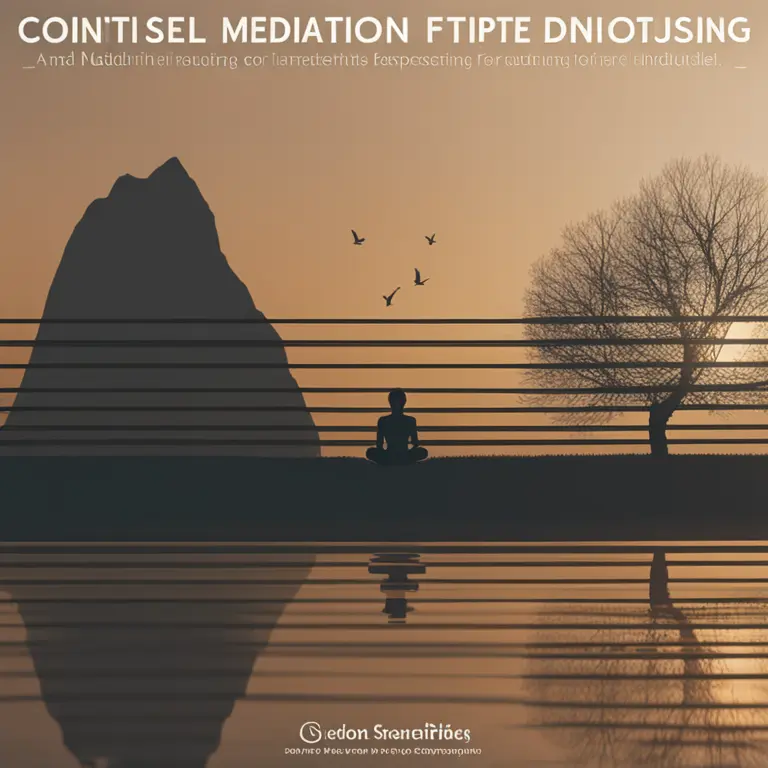
Can Meditation Manage Depression?
Discover how meditation can contribute to managing depression, its potential benefits, and the connection between mindfulness and mental health.
article by Hina Kurosawa
Meditation and Mental Health
Meditation has been practiced for centuries as a method for fostering inner peace and improving mental clarity. Today, amidst the hustle and bustle of modern life, the art of meditation has surged in popularity as a tool for stress management and emotional well-being. As depression becomes an ever more visible concern in public health, the potential role of meditation in alleviating depressive symptoms has attracted significant attention. Recent studies have underscored that systematic meditation practices can have a positive impact on mood, offering a complementary approach to traditional depression treatments.

Evidence-Based Benefits
In the realm of scientific research, various forms of meditation, including mindfulness-based stress reduction (MBSR) and mindfulness-based cognitive therapy (MBCT), have been shown to be beneficial. These practices, founded on the tenets of mindfulness, encourage individuals to engage fully with the present moment, acknowledging and accepting their thoughts and feelings without judgment. Clinical trials indicate that these techniques can lower the risk of depression relapse and aid in managing day-to-day symptoms. Importantly, meditation is not a standalone cure, but is increasingly recognized as part of a comprehensive mental health strategy.

Understanding Mindfulness
Mindfulness meditation is often at the center of discussions about meditation and depression. Its application involves observing one's own mind and thought patterns with a sense of detachment and compassion. By learning to witness their thoughts without becoming entangled in them, individuals may reduce the impact of negative thinking, which is prevalent in depression. This practice of awareness can help interrupt the downward spiral of depression, creating space for more positive interactions with one's thoughts and feelings.

Building a Routine
Developing a consistent meditation practice is key to obtaining its benefits. For those facing depression, establishing a routine can be particularly challenging, yet it is crucial for meditation to exert its therapeutic effects. It doesn't require hours of sitting still; even brief daily sessions can prove helpful. The accessibility of meditation makes it a viable option for many, with guidance available through myriad apps, online programs, and in-person classes designed to meet a variety of needs and preferences.

Contraindications and Considerations
While meditation has many proponents, it’s important to consider that individual responses to meditation can vary. Some individuals may experience increased anxiety or uncomfortable levels of self-awareness, especially when dealing with trauma-related depression. Therefore, it is essential that meditation practice be approached with care, and that individuals consult with healthcare professionals when integrating meditation into a treatment plan for depression.
Integrating Meditation with Other Treatments
Meditation should not be seen as a substitute for professional medical treatments like therapy and medication, which are the cornerstone of depression management for many individuals. However, when integrated with such treatments, meditation can support and enhance their effectiveness. Collaborating with healthcare providers can ensure that meditation complements the treatment plan, working in tandem with other approaches to maximise holistic well-being.
Published: 1/15/2024
Modified: 1/15/2024
More predictions
Come back here soon to learn more about yourself and your future


Healing Through Mindfulness: Meditation & Trauma Recovery
Mindfulness meditation offers a powerful tool for individuals seeking solace and healing from traumatic experiences. Discover how this practice can aid in the journey towards inner peace.


Harmonizing Life with Meditation Mantras
Delve into the transformative power of meditation mantras to align mind, body, and spirit for a harmonious existence.


Discovering Life with Meditation Mantras
Delve into the transformative power of meditation mantras to harmonize your mind, body, and spirit for a tranquil existence.